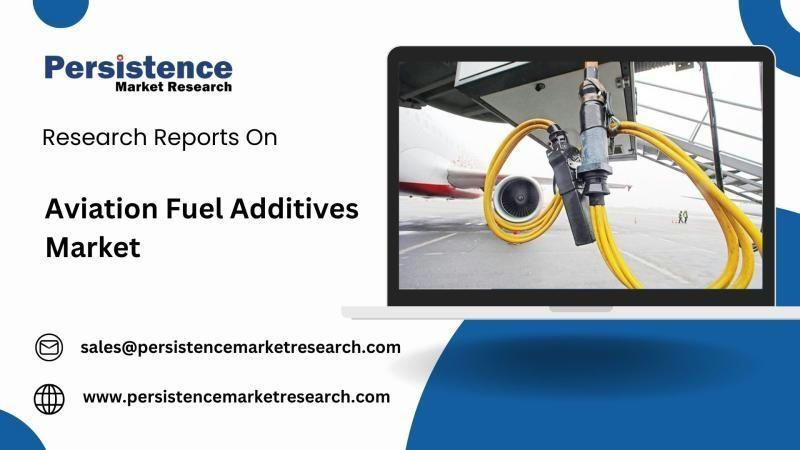AeroGenie — Your Intelligent Copilot.
Trending
Categories
Aviation Fuel Additives Market Expected to Grow 6.2% Annually Over Next Decade

Aviation Fuel Additives Market Projected to Expand at 6.2% CAGR Through 2031
The global aviation fuel additives market is poised for significant growth over the next decade, with analysts forecasting a compound annual growth rate (CAGR) of 6.2% from 2024 to 2031. Market valuation is anticipated to increase from $870.2 million in 2024 to $1,325.2 million by 2031. This expansion is primarily driven by the aviation sector’s escalating demand for fuels that are more efficient, environmentally cleaner, and capable of delivering enhanced performance.
Aviation fuel additives play a critical role in optimizing engine performance, improving combustion efficiency, and ensuring operational safety under a variety of environmental conditions. The commercial aviation segment remains the dominant consumer, supported by rising passenger traffic and continuous expansion of airline fleets worldwide.
Regional Dynamics and Market Segmentation
North America currently holds a leading position in the aviation fuel additives market, underpinned by its advanced aviation infrastructure, high volume of air travel, and stringent environmental regulations that promote the adoption of cleaner fuel technologies. The region’s market leadership is further strengthened by active research initiatives in sustainable aviation fuels (SAF) and robust collaborations between airlines and additive manufacturers.
Meanwhile, the Asia-Pacific region is expected to experience the fastest growth rate through 2031. This surge is fueled by increasing disposable incomes, rapid growth in air passenger numbers, and expanding commercial fleets in key markets such as China and India.
The market is categorized by product types including antioxidants, corrosion inhibitors, lubricity improvers, icing inhibitors, and metal deactivators. Among these, antioxidants and corrosion inhibitors hold a substantial market share due to their effectiveness in enhancing fuel stability and protecting engine components. The ongoing transition toward sustainable aviation fuels is also driving demand for next-generation additives that are compatible with biofuels.
From an end-user perspective, the market is segmented into commercial aviation, military aviation, and general aviation. Commercial aviation dominates the landscape, propelled by the imperative for improved fuel efficiency and the growth of low-cost carriers. Military aviation represents an emerging segment as defense forces worldwide modernize their fleets and emphasize performance reliability.
Market Drivers and Challenges
The primary catalyst for market growth is the rising global demand for air travel, supported by factors such as urbanization, expanding tourism, and a growing middle class. Airlines are increasingly prioritizing operational efficiency, which in turn boosts demand for additives that enhance fuel stability, reduce corrosion, and extend engine lifespan. Additionally, the shift toward sustainable aviation fuels presents new avenues for innovation in additive formulations.
Nevertheless, the market faces several challenges. High fuel costs, driven by volatile crude oil prices and supply-demand imbalances, continue to pose significant concerns for airlines. These pressures are accelerating the adoption of sustainable aviation fuels as carriers strive to meet ambitious environmental targets. In response, industry players are investing in SAF production and forging strategic partnerships, including collaborations with companies like IDunnH2 to supply electrofuels (eSAF).
The sector is also navigating ongoing supply chain disruptions, fluctuating demand patterns, geopolitical uncertainties, and evolving sustainability regulations. These factors may influence the pace and direction of growth within the aviation fuel additives market.
Outlook
Despite these challenges, the aviation fuel additives market is expected to sustain steady growth, supported by technological advancements, regulatory frameworks favoring cleaner fuels, and the aviation industry’s commitment to sustainability. Strategic partnerships and continued innovation in additive technologies will be essential to addressing the evolving requirements of airlines and advancing the sector’s long-term environmental objectives.

Emirates Unveils Cabin Design for New Boeing 777X

Eighteen Years On, the Airbus A380 Remains Central to a $34 Billion Airline

How a boom in luxury airline seats is slowing down jet deliveries

Navitaire Outage Attributed to Planned Maintenance

DigiYatra Debuts Outside Aviation at India AI Impact Summit

Vietnam Orders Strengthen Boeing’s Commercial Outlook

Airbus Signals Uncertainty Over Future A400M Orders

JobsOhio Awards $2 Million Grant to Hartzell Propeller for Innovation Center

Collins Aerospace Tests Sidekick Autonomy Software on YFQ-42A for U.S. Air Force CCA Program

How the Airbus A350-1000 Compares to the Boeing 777
